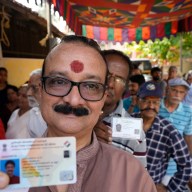The last thing any traveller wants is to lose a wallet, whether it’s misplaced or taken by a pickpocket, in the middle of a vacation.
As the summer travel season approaches, it’s a good time to review the financial rules of the road. Consumers who take a few precautions before they leave home can help ensure their cash and credit cards are safe and secure, whether their trips take them elsewhere in the country or overseas.
“We don’t want to be alarmist because people can run into problems in their own neighbourhoods, too,” said Nancy Dunnan, publisher of travelsmartnewsletter.com in New York. “But losses can be much harder to deal with if you’re away from home and you don’t know the local procedures or, sometimes, the local language.”
Dunnan said the first thing people need to do is limit what they carry with them. In most cases, she recommends no more than two credit cards — one for regular use and the other for backup — or one credit card and one debit card for cash withdrawals.
“It helps to notify the card issuers you’ll be travelling, so they don’t put a hold on the card when they start seeing charges from an unfamiliar place,” Dunnan said. “And you should double check your limits so you don’t go over the top.”
Dunnan also recommends families carry traveller’s cheques. Although the availability of automated teller machines, or ATMs, has made traveller’s cheques less essential, they remain a good source of cash if credit or debit cards are lost or stolen.
“The amount (of traveller’s cheques) you need depends on the length of the trip,” she said. “But it doesn’t hurt to have anywhere from $250 to $500 to get you through a difficult time.”
For those travelling abroad, it can be a good idea to buy in advance the equivalent of $100 in the currency of the country you’re visiting. That way, you can cover taxi fares, porters’ tips and other expenses you may incur before you have time to change money.
How you carry money and credit cards around affects your security, said Sarah Schlichter, editor of the independenttraveler.com website, based in Pennington, N.J.
Schlichter keeps her credit cards and dollars “in a money belt under my clothes.” Then, she said, she puts the equivalent of $100 in local currency in a cheap, plastic wallet that she keeps in her pocket.
“That way, when I’m pulling out my wallet, I’m only exposing a limited amount of local currency,” which presumably is less attractive to a thief than a large amount of dollars, she said.
Schlichter also said people need to stay aware of their surroundings, both at home and abroad.
“You have to use common sense,” she said.
That means choosing ATMs inside banks or in hotel lobbies and “not in a dark, creepy alley,” she said.
















